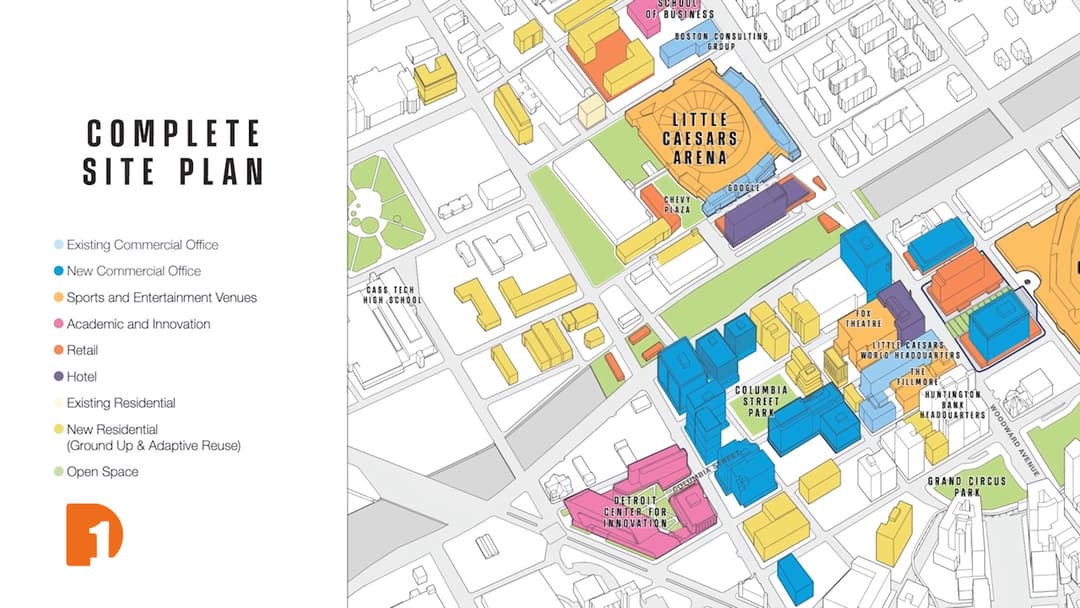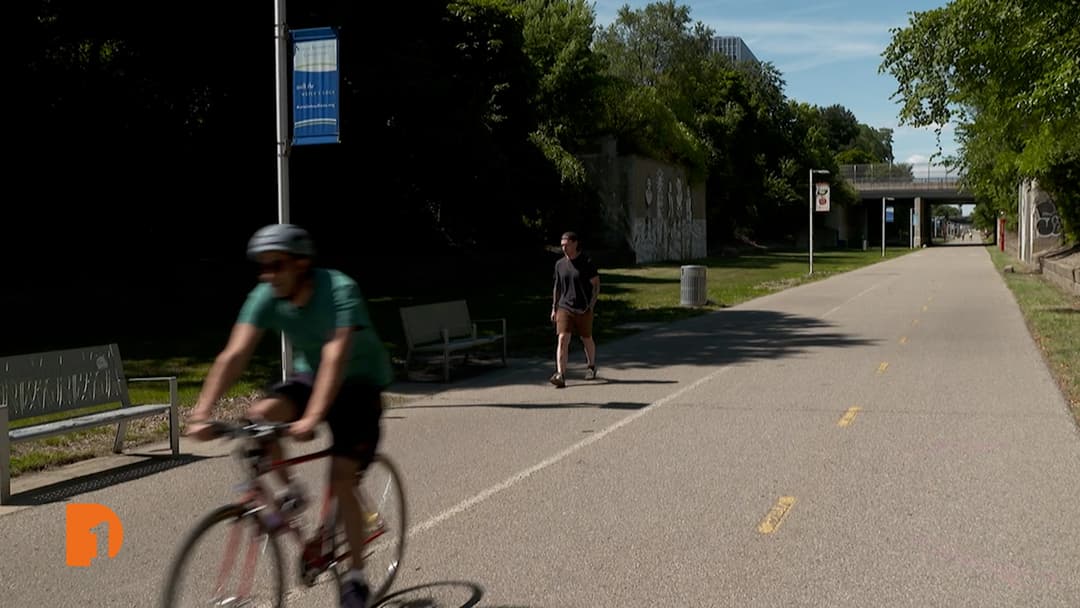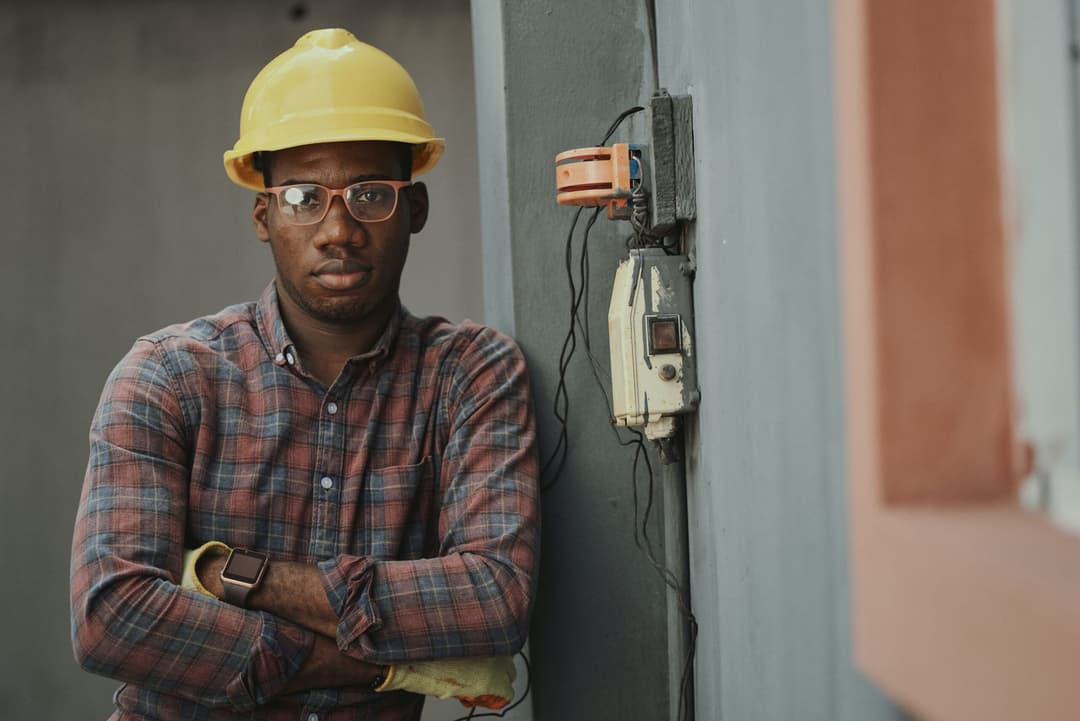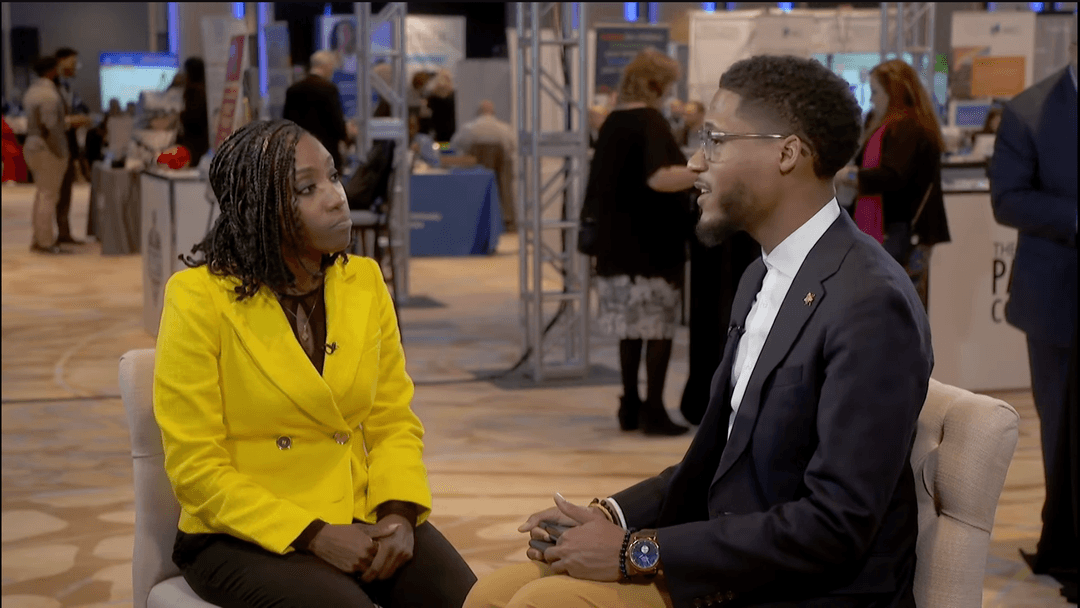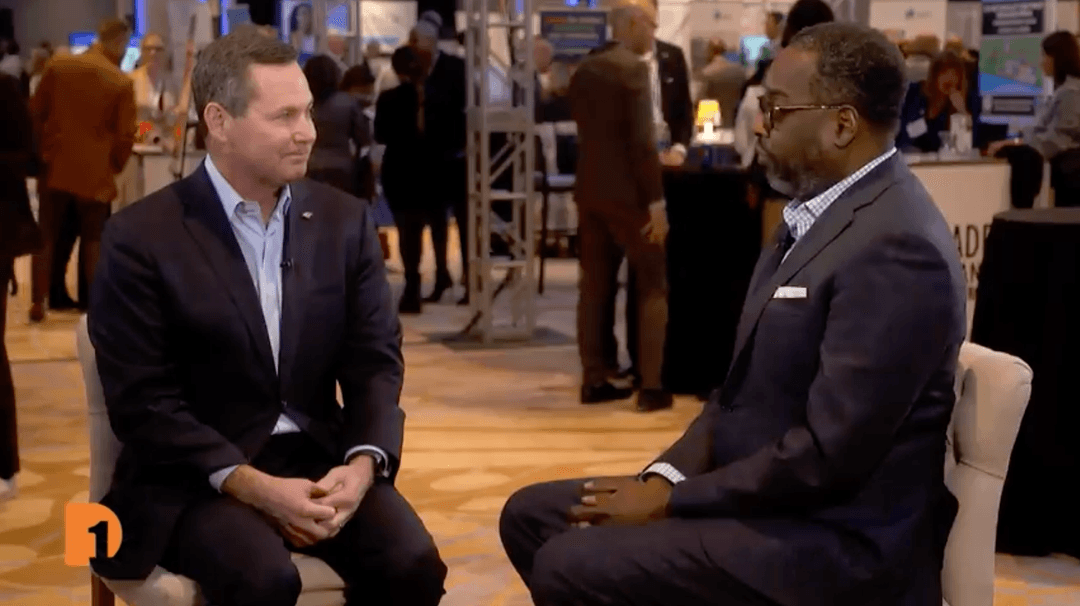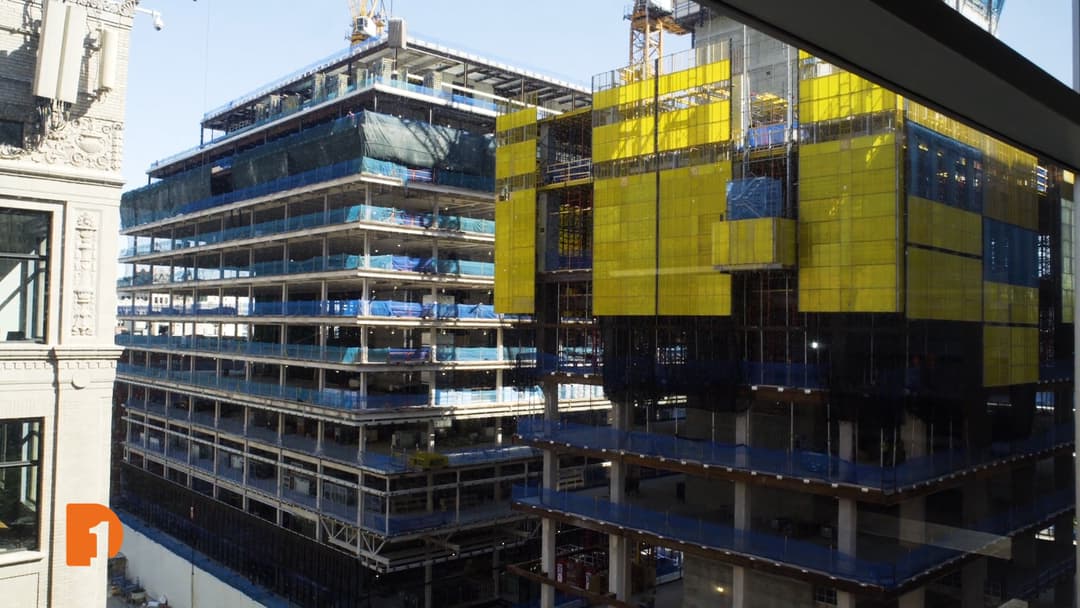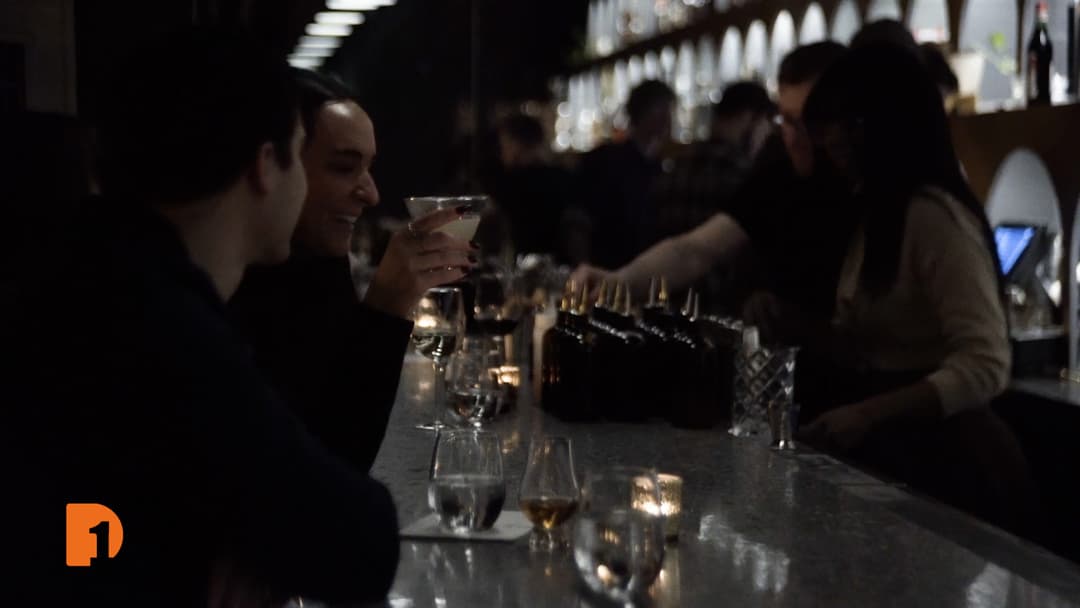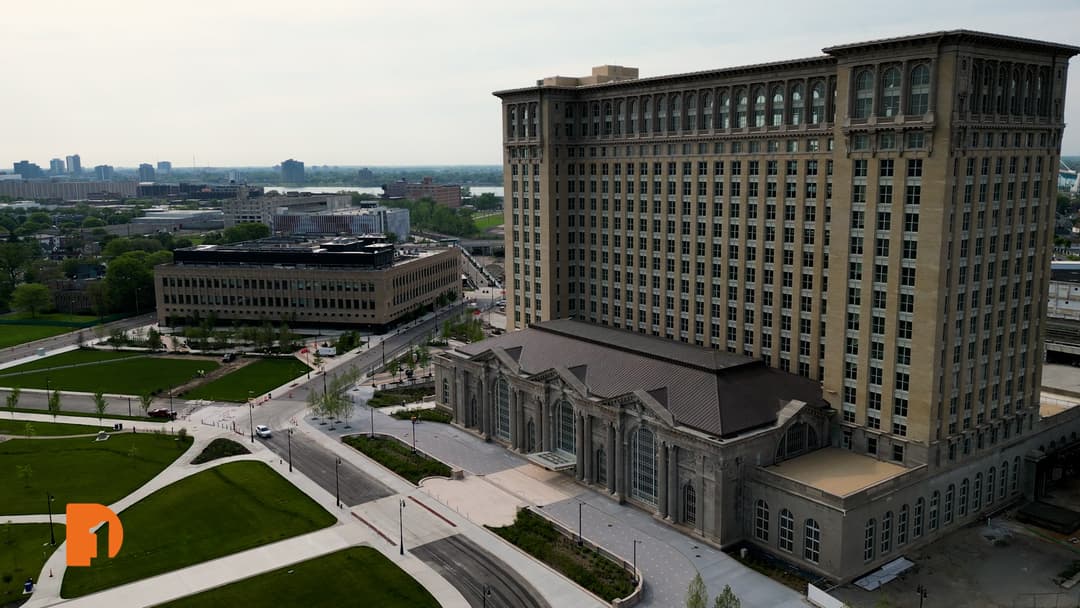$134 Million Mixed-Use Redevelopment Proposed for Former Fisher Body Plant
Mar 22, 2022
One of Detroit’s long-abandoned auto plants, the former Fisher Body Plant No. 21, may soon be transformed into housing and retail space. The plant, which sits in Detroit’s Milwaukee Junction area, has been vacant for nearly 30 years. Now, two African American developers want to convert the 600,000 square foot site into more than 400 apartments, along with commercial, retail and co-working spaces.
While the City of Detroit still owns the former Fisher Body Plant No. 21 and the proposed redevelopment must still be approved, BridgeDetroit’s Orlando Bailey, sitting in for host Stephen Henderson, talks with the developer duo, Gregory Jackson and Richard Hosey, to learn more about their vision for this $134 million renovation.
Full Transcript:
Orlando Bailey: Listen, I’m really, really excited to talk to you guys about the new Fisher development that’s making headlines all across the city and state. Well, I’m really interested on learning how the two of you decided to come together and partner to take on such a massive project.
Richard Hosey, Owner, Hosey Development: So, it was particularly interesting because we just struck up a conversation on Memorial Day, I think it was 2018, and you know, Greg talked about us partnering together and I told him, you know, I would love to, I felt like it was a great honor. We try to think of, you know, start talking about projects that interested us. And I said the fisher body, and he said, “Well, I was thinking about Fisher Body”. We had both been independently riding past the building and thinking about what it could become, and it went straight from there. We went right into talking about how to make it work and figuring out the numbers on it. And so, you know, we just happened to be in the same place for Memorial Day.
Orlando Bailey: Wow, that’s pretty amazing. Hey, we had that Memorial Day gathering. Hey, let’s figure out how to dream about, and I don’t even know if you guys knew this, the biggest development project for Black developer in Detroit history, with the price tag of $130 million dollars. So how is the performance and the financing coming together for this, Greg?
Greg Jackson, Owner, Jackson Asset Management: It’s coming together good, we’re pretty much done. We don’t have a complete bow on it, we don’t have every I dotted, every T crossed. But we’re very optimistic that in the next 90 to 120 days, we’ll have all of that done. So, we’re feeling very, very good about everything.
Orlando Bailey: Awesome. Richard, there are still some approvals, of course, that are needed to move forward. The city has to actually sell the building and there some council approvals and things, some additional hurdles that you guys have to get through. How confident are you in the building sale actually happening and all the approvals going through? How much are they selling the building for? If I could try to get the price tag on it.
Richard Hosey: So, it still has to be laid out with the valuation on the building in its current condition and the surrounding land. And so, we’re locking that number in, you know, in the press conference, the mayor said there’d be a million or below, because of a traditional building, of course, and so that will be locked in. We feel very confident that, you know, after conversations with City Council, that they’ll see the impact and feel comfortable approving the sale.
But the first step is going out to the community and getting their buy-in, and approval, and understanding, explaining the impacts of the project, the positives, hearing their concerns about any potential negative impacts on the project, and how do we offset those. So, before we get to the city council approvals, we go to the community and get all their, make sure they’re heard in terms of the community benefits agreement.
Orlando Bailey: I mean, it’s really cool to hear developers talking about the community engagement strategy. I think a project of this size and magnitude actually triggers that community benefits agreements ordinance that was enacted a few years ago. So, what does that process look like for you all? I mean, are you guys beginning that now? The Neighborhood Advisory Council, is it being set up? And what sorts of things are you looking to hear from the community to be implemented for in this project?
Greg Jackson: Well, that process is starting right now. We expect to have it completed, hopefully by the time we get to June, maybe somewhere in there. There’s 8 to 10 meetings that are associated with that. What we, I’m not sure what we expect to hear from the community. What’s interesting about this community, is that it’s largely a business industrial community.
Now there’s a greater census track, I believe, that we reach out to, to the North, which is called the “North End”, which used to be very dense, which is very sparse right now, so there is some housing attached to that. I’m not sure exactly what we will hear from the community as a whole. Our expectation would be that community would be excited about getting rid of a building that has been part of Detroit’s ruin for so long, that the community would be excited about reactivating a neighborhood and bringing housing into it, that community would be, and the city as a whole, would be excited about the prospect of not spending somewhere between our estimates are 10 to 25 million dollars to have to tear down a structure, which would come out of the city budget.
And instead of spending that money out of the city budget, now that money can be allocated toward other developments in community projects around the city. Plus, obviously taking a building that has not been on the city tax rolls for many years and restoring it to the city tax roll. So we would hope that the community would feed into all those positive things and join us in celebrating this and getting it across the finish line.
Orlando Bailey: Yeah, I don’t think we can overstate how exciting it is to see two African-American developers working on such a monumental project. One of the things that right now is in the ethos is, you know, the rise of construction costs, and the conversation around getting Black-owned Detroit-based talent and contractors. What is your purview and management strategy look like, given those caveats, Richard?
Richard Hosey: Well, that’s one of the things that Greg and I kind of, myself and our partner, Kevin Lewand, we always from the beginning have felt very comfortable with, we’ve always tried to use as many Detroit contractors, we believe in their strength, and we believe in their expertise, and we believe in speaking with them about any areas where it would become, that would be a barrier to them being on a project of any size, and helping remove those barriers.
We found that to be a successful strategy from a business perspective and not just from a community or social perspective. So, you know, when the solution to one problem is the solutions of the other, then that’s perfect. And we were already doing that, and that’s what we’ll do here.
Orlando Bailey: I want to ask this question of both of you regarding other up-and-coming African-American developers in the city who are looking at this project, essentially, you know, as the North Star to aspire to. Can each of you sort of talk about how you guys see yourselves as Black Detroiters and developers? And how you’re holding the door open for those who are coming up behind you, who want to do a project of this magnitude one day in their city? Greg, we’ll start with you.
Greg Jackson: You know, I guess I would say, it’s important for everyone to, Black, white, green, no matter what color of the person is, excellence is excellence. And irrespective of your color, I think you just need to be excellent in what you’re doing, how you present yourself, and how you do the projects that you do. We see this less as a north star for Black people,
I mean, some are trying to hold it up as that, and I guess that’s OK. But we really look forward to the day when that label isn’t put on our excellence. Because, to some extent, it almost sounds like it diminishes what we’re doing, as if somehow African-Americans can’t do the same thing that everyone else does. You know, at what point are we tired of being a good Black developer, a good Black doctor, a good Black dentist, a good Black lawyer? At what point are we just an excellent lawyer, an excellent doctor, an excellent developer?
So, I think we’re happy if it encourages some other people. That if it says to other African Americans that, yes, you can do it, I think that’s a good thing, while at the same time, I think we want to be known less for that, than we want to be known for our excellence as businesspeople.
Orlando Bailey: Richard will give you the last word.
Greg Jackson: Yeah, absolutely, so I completely agree. And when I think back to our initial conversation, so, you know, I was honored that someone of great stature and business acumen was interested in partnering with me. And is, you know, and he happened to be Black, and I happen to be Black. But I didn’t think, ohh even as a Black person, he was the partner. I was just, I felt like it was a compliment of what I’ve accomplished, that he would want to work with me.
And so, you know, and that’s one of the interesting things about growing up in Detroit and going to Florida, NM, you know, you probably ended up talking less about race when you’re amongst yourself, because we’re just all Black. So it just felt normal. It was just, you know, a business icon speaking to, you know, a becoming a developer about working together. And, you know, obviously, when we open up to the broader world, then people speak more about us being Black. But we were just talking about doing a great deal together.
Orlando Bailey: And a great deal you all are embarking upon. Greg Jackson, Richard Hosey, thank you for joining us on American Black Journal.
Richard Hosey: Thank you.
Greg Jackson: Thank you so much.
Subscribe to Detroit PBS YouTube Channel & Don’t miss American Black Journal on Tuesday at 7:30 p.m and Sunday at 9:30 a.m. on Detroit PBS, WTVS-Channel 56.
Catch the daily conversations on our website, Facebook, Twitter and Instagram @amblackjournal.
View Past Episodes >
Watch American Black Journal on Tuesday at 7:30 p.m. and Sunday at 9:30 a.m. on Detroit Public TV, WTVS-Channel 56.
Stay Connected
Subscribe to Detroit PBS YouTube Channel & Don’t miss American Black Journal on Tuesday at 7:30 p.m. and Sunday at 9:30 a.m. on Detroit PBS, WTVS-Channel 56.
Catch the daily conversations on our website, Facebook, Twitter, and Instagram @amblackjournal.
Related Posts
Leave a Reply
Your email address will not be published. Required fields are marked*
